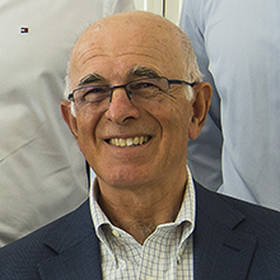- About
- People

Our research explores specific aspects of pathophysiology, diagnosis and therapies for diseases of the oesophagus & upper GI tract, including gastro-oesophageal reflux disease, motility disorders and upper gastrointestinal surgery such as fundoplication, cardiomyotomy and bariatric surgery.
Recent Key Findings
Bile Reflux: An increasingly overweight population are undergoing weight-loss operations and are at risk of bile reflux. Our review of the literature for bile reflux investigations reports on the efficacy, patient tolerability, cost, and infrastructure requirements for objective assessment of this clinical problem. At this time, whilst no gold standard exists, hepatobiliary scintigraphy is the least invasive investigation with good-patient tolerability, sensitivity and reproducibility.
Oesophageal peristaltic reserve: Multiple rapid swallows (MRS) during high-resolution oesophageal manometry is a new challenge test for patients showing low amplitude peristalsis on standard testing. There is emerging evidence that MRS may be useful in determining outcomes for anti-reflux surgery. The key findings of our literature review were: inadequate peristaltic reserve before surgery was present in patients who developed post-operative dysphagia (p<0.02); evidence supports multiple rapid swallows being performed in triplicate. These findings warrant further research to substantiate these findings.
Researchers
-

Dr Jenny Myers
Position: Clinical Scientist
Group: Oesophageal Physiology Group
Email: [email protected]
-

-

Dr Vijay Abraham
Position: Staff Surgeon
Group: Oesophageal Physiology Group
Email: [email protected]
-

Associate Professor George Kiroff
Position: Lead Researcher
Group: Oesophageal Physiology Group
Email: [email protected]
Student Alumni
| Name | Degree | Year Awarded | Thesis title | Supervisors |
|---|---|---|---|---|
| Dr Tom Eldredge | PhD, The University of Adelaide | 2022 | Bile reflux post-bariatric surgery | Kiroff G, Shenfine K (FMC), Myers JC |
| Dr Siang Wei Gan | MPhil (Surgery), The University of Adelaide | 2021 | Pressure and flow dynamics of the gastro-oesophageal junction after laparoscopic fundoplication | Kiroff G and Myers JC |





